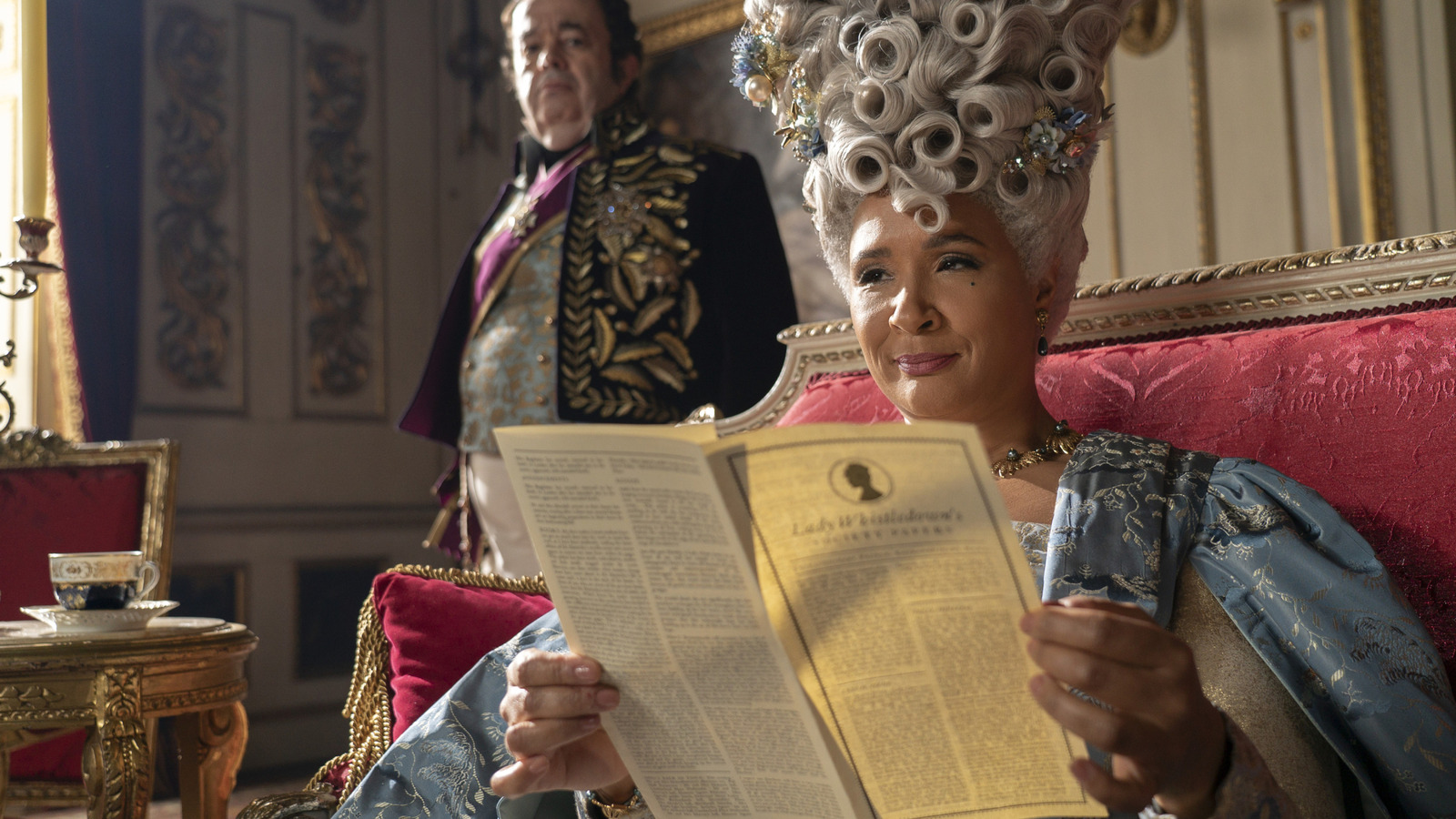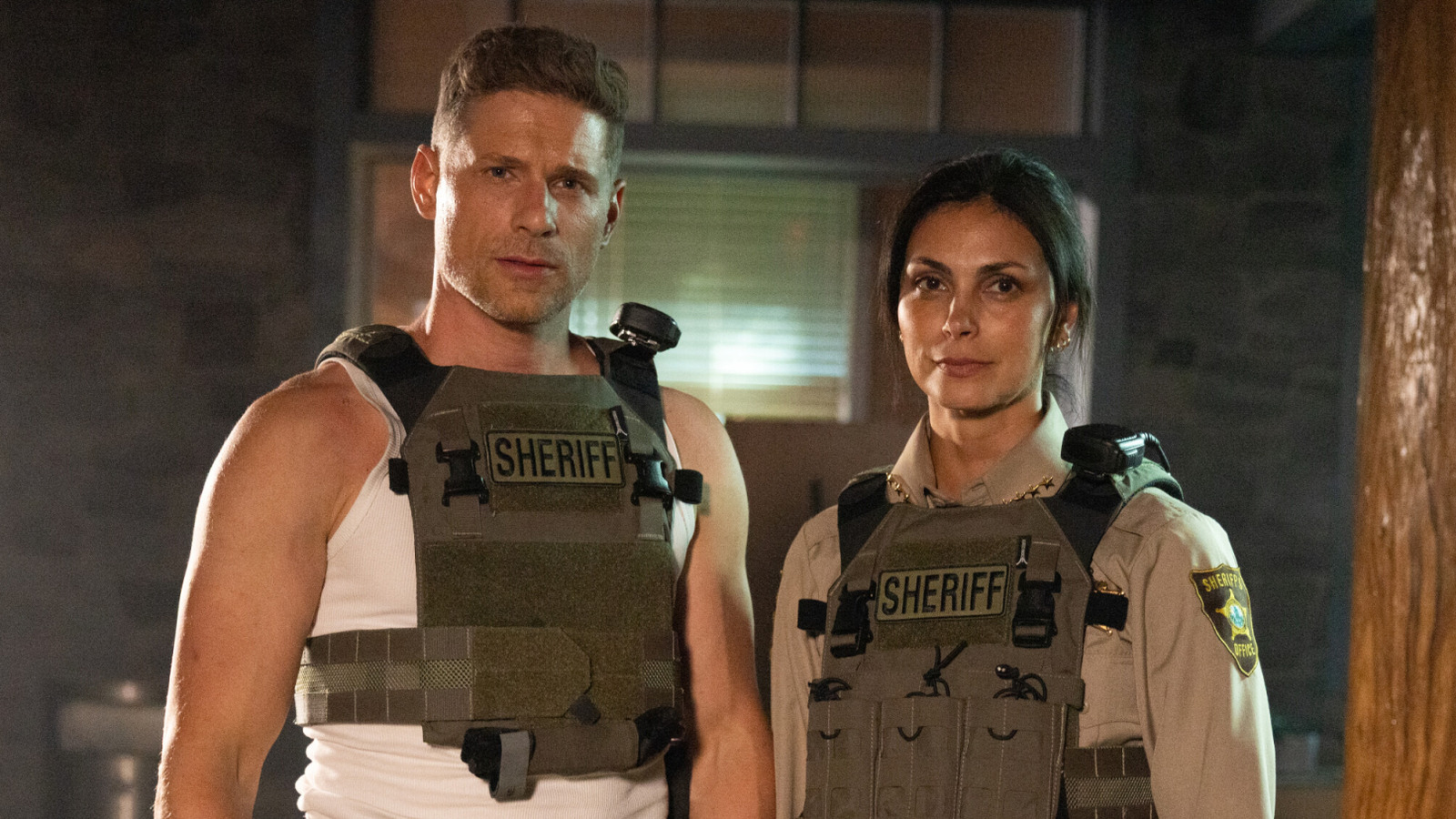This week, Law & Order turns its focus to “The Perfect Family.” But there was nothing perfect about the Chapmans. The episode had all the ingredients for a gut-wrenching drama—filicide, mental illness, moral dilemmas, and legal maneuverings—but somehow, it never ignited. Instead, it stayed procedural, with every character playing their tragic role as expected.
 “A Perfect Family” – LAW & ORDER, Pictured: (l-r) Reid Scott as Detective Vincent Riley, Maura Tierney as Lieutenant Jessica Brady. Photo by: Virginia Sherwood/NBC @ 2025 NBCUniversal Media, LLC. All Rights Reserved.
“A Perfect Family” – LAW & ORDER, Pictured: (l-r) Reid Scott as Detective Vincent Riley, Maura Tierney as Lieutenant Jessica Brady. Photo by: Virginia Sherwood/NBC @ 2025 NBCUniversal Media, LLC. All Rights Reserved. Detective Riley (Reid Scott) and Lieutenant Brady (Maura Tierney) investigate the murder of 13-year-old Emily Chapman (Riley Vinson), pushed to her death—but by whom? The parents, Derek (Brett Zimmerman) and Melinda Chapman (Alison Miller), are devastated. At first, suspicion falls on an overly attentive coach, but it’s too obvious. He has no solid alibi, which is OK because he didn’t do it.
This forces the detectives to reinterview Melinda Chapman. She insists she was home, struggling to get her seven-month-old to nurse. Surveillance video shows Melinda on the roof her daughter was pushed from, proving that she lied. Confronted with this evidence, Melinda immediately invokes her right to counsel as she is arrested.
 “A Perfect Family” – LAW & ORDER, Pictured: Allison Miller as Melinda Chapman. Photo by: Virginia Sherwood/NBC @ NBCUniversal Media, LLC. All Rights Reserved.
“A Perfect Family” – LAW & ORDER, Pictured: Allison Miller as Melinda Chapman. Photo by: Virginia Sherwood/NBC @ NBCUniversal Media, LLC. All Rights Reserved. The DA’s office determines the real issue at the heart of the case: untreated postpartum psychosis—and the ripple effects of a husband’s rigid worldview. Derek Chapman, shaped by his mother’s suicide while taking antipsychotics, refused to allow his wife treatment. He sees mental illness as weakness. As an ex-Navy Seal, Melinda’s broken mind was something he could not tolerate. His decision led to tragedy, leaving Executive ADA Nolan Price (Hugh Dancy), with no choice but to charge Derek Chapman with manslaughter.
Investigating a child’s murder by their parent rattles detective Riley—not just professionally but personally, reminding him that no parent is immune to failure. One of the most enjoyable parts of “The Perfect Family” is the glimpse into Riley’s personal life, introducing his teen daughter, Bridget (Justine Colan). His struggles as a father stand in stark contrast to Derek Chapman’s. While the crime is built on benign neglect, tragedy, and irreversible consequences, Riley’s relationship with Bridget is a quieter reflection on the difficulties of parenthood.
 “A Perfect Family” – LAW & ORDER, Pictured: (l-r) Justine Colan as Bridget Riley, Reid Scott as Detective Vincent Riley. Photo by: Virginia Sherwood/NBC @ 2025 NBCUniversal Media, LLC. All Rights Reserved.
“A Perfect Family” – LAW & ORDER, Pictured: (l-r) Justine Colan as Bridget Riley, Reid Scott as Detective Vincent Riley. Photo by: Virginia Sherwood/NBC @ 2025 NBCUniversal Media, LLC. All Rights Reserved.
In contrast to Derek Chapman, who is willfully blind to his family’s suffering, Riley’s desire to bridge the communication gap with his daughter is palpable. At one point, he texts Bridget at school. However, Bridget’s immediate suspicion—accusing him of ‘testing’ her—highlights the strain in their relationship, revealing a dynamic laced with power struggles and misunderstandings. He simply wants reassurance that they are still tethered. When she finally offers him a hug, it’s a quiet, beautiful moment.
Back to the case. Melinda’s insanity plea puts her on a collision course with her husband as the prosecution’s star witness. Unfortunately, DA Price quickly realizes that a witness who openly admits insanity lacks credibility. The case devolves into a “he said, she said” mess. DA Nicholas Baxter (Tony Goldwyn) asks Price bluntly, “Can we win?”
Price admits the only way to prove Chapman’s prior knowledge of his wife’s instability is to call their 10-year-old daughter, Amanda (Delaney Quinn), to testify. But there’s a problem—she’s shown signs of suicidal ideation. Price doesn’t want to harm her. Baxter urges him to use Chapman’s aversion to psychiatric intervention against him.
 “A Perfect Family” – LAW & ORDER, Pictured: Delaney Quinn as Amanda Chapman. Photo by: Virginia Sherwood/NBC @ 2025 NBCUniversal Media, LLC. All Rights Reserved.
“A Perfect Family” – LAW & ORDER, Pictured: Delaney Quinn as Amanda Chapman. Photo by: Virginia Sherwood/NBC @ 2025 NBCUniversal Media, LLC. All Rights Reserved.The courtroom’s “high-noon” moment—a father watching his ten-year-old daughter being called to testify—has the potential for an emotional reckoning. But the DA folds after the child’s simple admission, “He’s, my daddy.” Price’s case could have been a gripping fight for accountability, but instead of a dramatic conclusion, his case collapses in slow motion. It feels like a pulled punch. Chapman is left with his own guilt, but the episode never forces him to truly confront it.
 “A Perfect Family” – LAW & ORDER, Pictured: (l-r) Natalie Gold as Atty. Megan Wallace, Brett Zimmerman as Derek Chapman. Photo by: Virginia Sherwood/NBC @ 2025 NBCUniversal Media, LLC. All Rights Reserved.
“A Perfect Family” – LAW & ORDER, Pictured: (l-r) Natalie Gold as Atty. Megan Wallace, Brett Zimmerman as Derek Chapman. Photo by: Virginia Sherwood/NBC @ 2025 NBCUniversal Media, LLC. All Rights Reserved.
“The Perfect Family” isn’t a bad episode—it’s well-written, well-acted, and follows the legal drama formula. But for a story tackling such high-stakes material, it never transcends expectation. Instead of moral ambiguity, we get resignation. Instead of an indictment of the father, we get a quiet unraveling of a case that maybe shouldn’t have been pursued at all.
Parenthood is impossibly complex. No perfect fathers. No perfect families. Just people doing their best, sometimes failing, sometimes succeeding, always hoping they’re making the right choices. While the episode lacks fireworks, it delivers something deeply relatable—the simple human need for connection.
Overall Rating:
8:10







